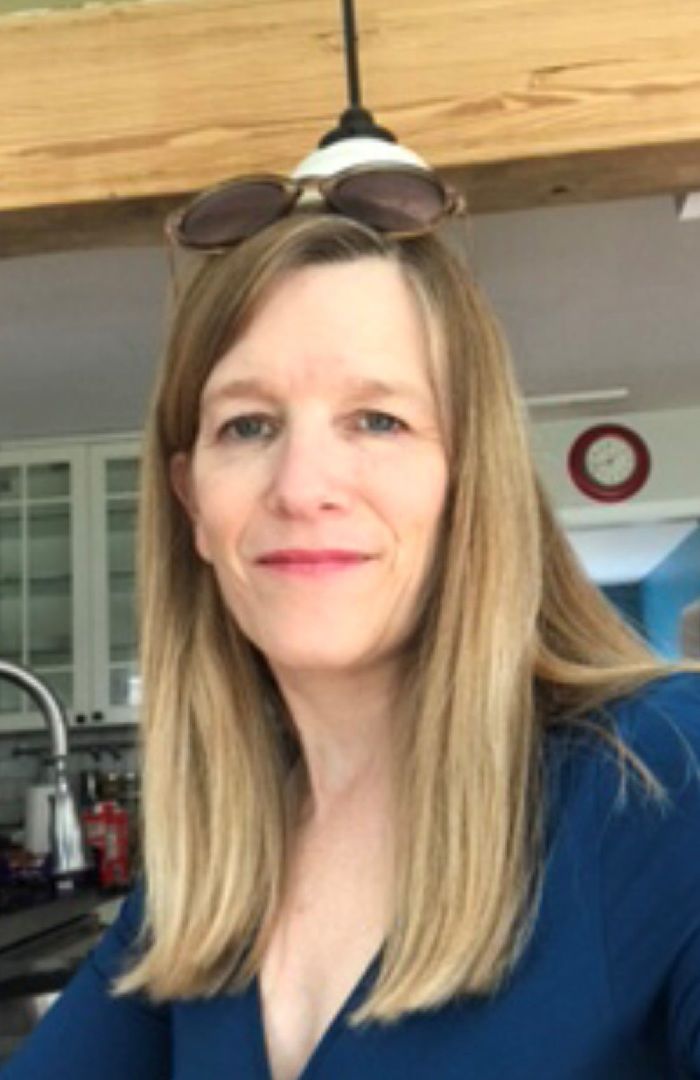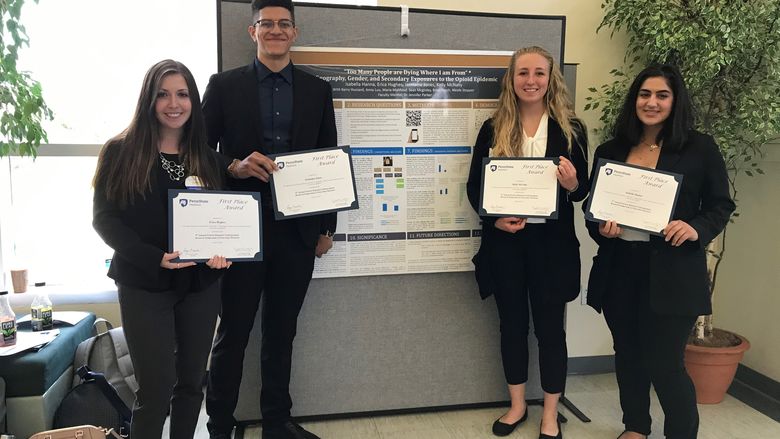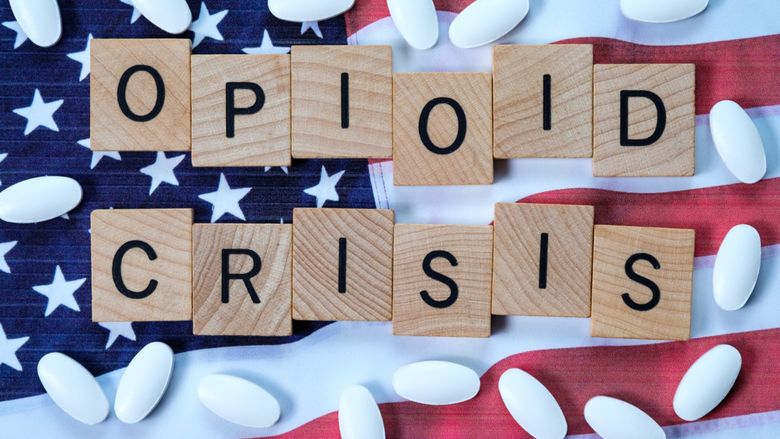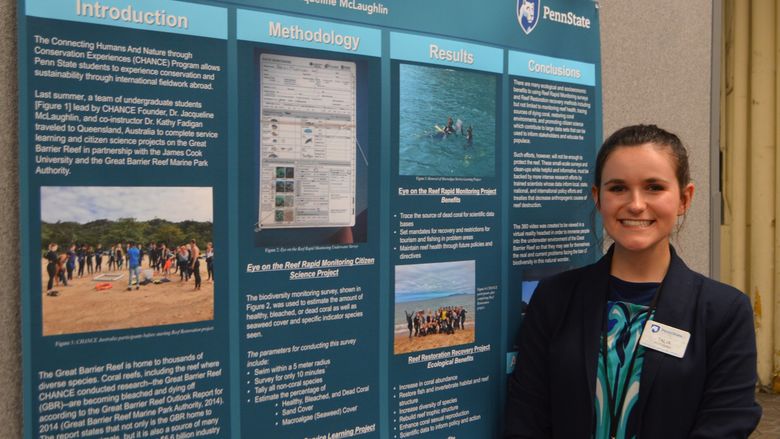
Isabella Hanna, a Penn State Lehigh Valley senior majoring in health policy administration.
CENTER VALLEY, Pa. — More than 70,000 people died from drug overdoses nationally in 2017, according to the Centers for Disease Control and Prevention, and one in three people know someone who met this fate, according to a report by the Penn State Lehigh Valley Opioid Project.
But what is rarely heard about is the emotional overload of those around the addict — the family, friends and treatment professionals severely impacted by their loved one’s painful disintegration.
"There’s so much attention on the people who abuse opioids, but we know very little about the people tied to the addict, and all the pain and destruction they experienced — often for years. It is a large and generally silent population that is growing in bounds," said Isabella Hanna, a Penn State Lehigh Valley senior majoring in health policy administration.
Hanna has been involved in the Penn State Lehigh Valley Opioid Project for the past two years and recently received a Student Engagement Network (SEN) Remote Innovation Grant, one of only 50 students who were awarded these grants.
Thousands of family members and friends are left behind each year, said Hanna, permanently scarred by the events leading up to their loved ones’ deaths, in addition to the many health care professionals who attempted to help change the downward trajectory of their patients.
“And COVID-19 is only making it worse,” said Hanna, who is using the SEN grant to study the pandemic’s impact on the opioid epidemic. “It’s as if everyone has turned attention away from the opioid epidemic. Not only is it deflecting attention from something that is incredibly important, it’s actually compounding the issue.”
The beginning stages of Hanna’s project stem from a 2019 study which she helped author, along with her mentor, Jennifer Parker, associate professor of sociology at Penn State Lehigh Valley. The 2019 study, “College students and secondary exposures to the opioid epidemic,” based on data from more than 1,200 college students in Pennsylvania, is slated to be released next month.
Hanna applied and received approval from the Institutional Review Board for her new project and will conduct 20 in-depth remote interviews of people who have connections to someone who misuses opioids or has died from an overdose. She said she wants to help amplify these voices through her research and hopes that it leads to the creation of support groups or policies to assist people who are exposed to the secondary exposures of the opioid epidemic.
“People know about the drug epidemic, but they don’t know about the people behind it who are caring for its victims while dealing with the impact of the pandemic,” Hanna said. “A social worker I interviewed shared that everything is getting worse for her and her clients [during the pandemic]. When things were shut down, many of her clients couldn’t get the help that they needed, so some, who were otherwise on the right path, went back to using.”
After Hannah’s internship was canceled due to the pandemic, Parker encouraged her to apply for the SEN grant.
“Research opportunities like this would be hard to find at other universities,” Hanna said. “My goal is to get this study published and continue moving my work forward to create positive change. I am excited to see where this goes.”
“I’m really proud of Bella,” Parker said. “She’s stepped up in big way. She is gifted at interacting with people and getting them to share their true thoughts and feelings. Understanding their journey is the first step in creating the support they need to remain healthy, despite the circumstances.”
Hanna is looking to interview additional individuals who have a close friend or family member suffering from opioid misuse during COVID-19. If interested in participating in the confidential study, email ith5020@psu.edu.
Dennille Schuler
Public Relations Specialist
Penn State Lehigh Valley





